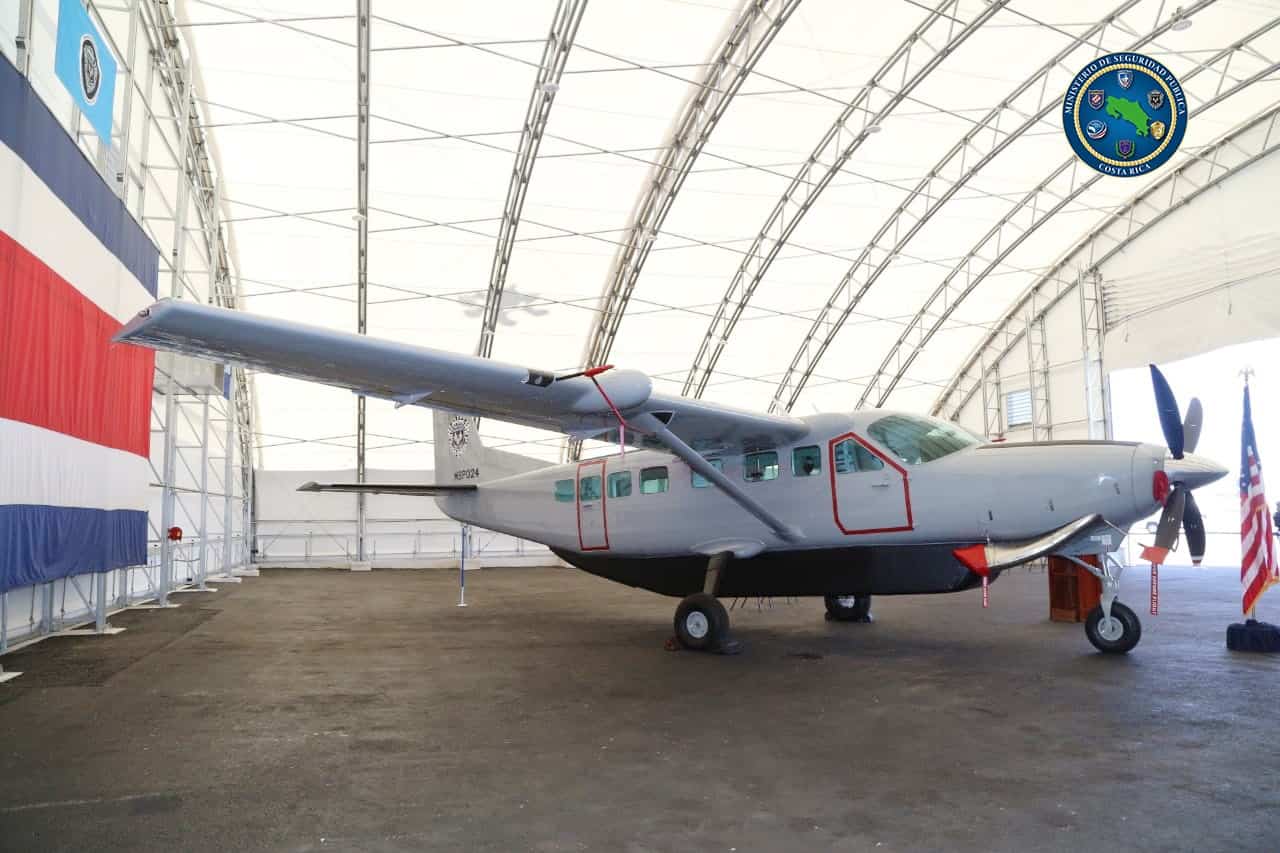The Air Surveillance Service (SVA) of the Public Security Ministry on Monday unveiled a new airplane meant to assist in anti-drug operations.
The ceremony was held at Juan Santamaría Airport in Alajuela alongside representatives from the U.S. Embassy, which helped fund the purchase of the Cessna Grand Caravan. The $5.6 million investment includes the aircraft, spare parts, maintenance and training.
“The United States is committed to working shoulder-to-shoulder with Costa Rica to build a more stable, prosperous and secure region,” said U.S. Ambassador Sharon Day. “The incorporation of this aircraft and this hangar will help Costa Rica to improve its support to isolated communities and its patrol capacity in the territory, making a difference in the lives of Costa Ricans.”
Public Security Minister Michael Soto highlighted the Cessna’s short takeoff and landing abilities, which will allow it to operate in remote areas in Costa Rica. The plane will support anti-drug, anti-illegal fishing, and humanitarian operations across the country.
“We did not just buy an airplane; we bought an aviation package, training and maintenance that allows us to have the equipment in the best possible conditions to serve the country,” Soto said.
In addition to financing the new plane, the U.S. Bureau of International Narcotics and Law Enforcement Affairs (INL) donated a hangar that will house Costa Rica’s four UH-1ST helicopters, previously gifted by the North Americans.
The U.S. currently provides Costa Rica with $40 million annually to fight narcotrafficking and organized crime in the region. This finances maritime and air-based programs, border security and the judicial system.
The U.S. and Costa Rica also coordinate in joint operations to stop international crime. Central America is one of the main routes for drugs headed from South America to the United States and Europe.






